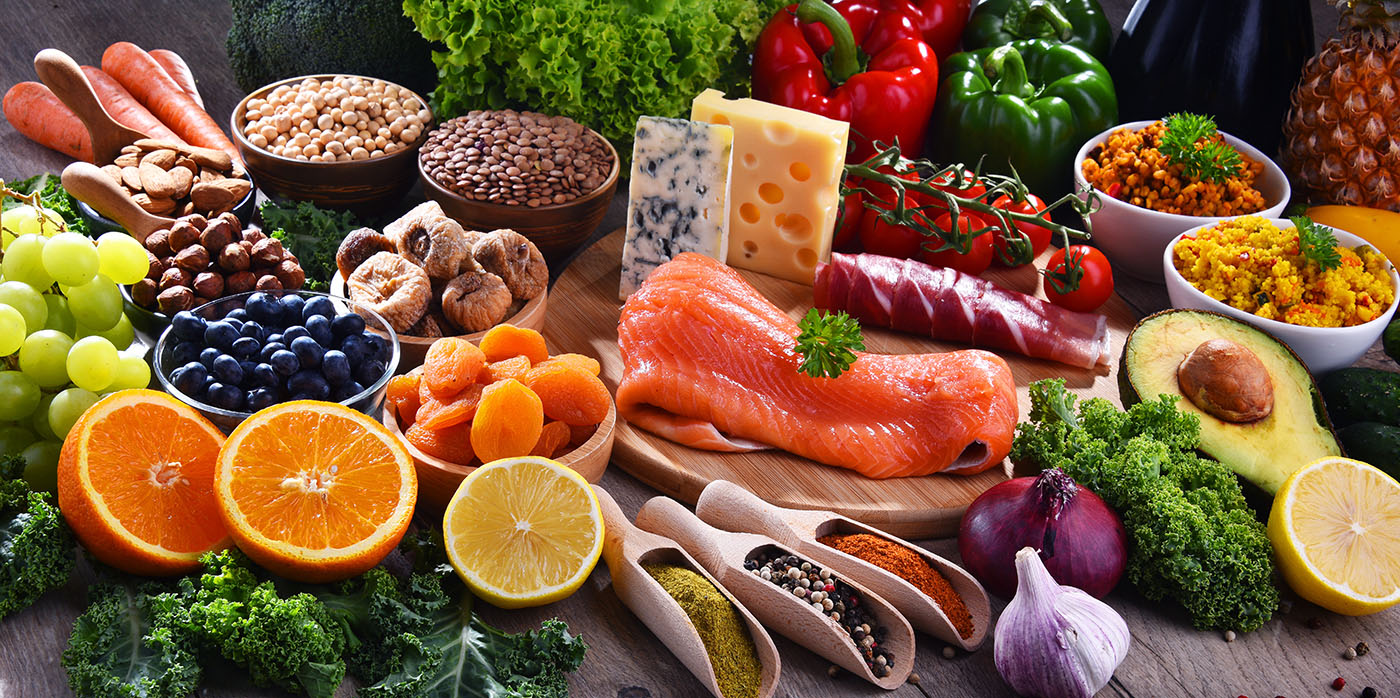
Probiotics and Foods for a Healthy Microbiome
The connection between gut health and skin condition has long been recognized by experts in both dermatology and gastroenterology. The gut microbiome, composed of trillions of bacteria, fungi, and other microorganisms, plays a crucial role in maintaining overall health, including the health of our skin. As research continues to unravel the intricate relationship between the gut and the skin, it becomes evident that what we eat can significantly impact the appearance and health of our skin.
In this blog post, we will delve into the fascinating world of the gut-skin connection and explore how a healthy microbiome can contribute to radiant and clear skin. We’ll discuss the role of probiotics in promoting gut and skin health, explore various foods that support a balanced microbiome, and even share some delicious recipes to help you incorporate these skin-loving nutrients into your diet. So, let’s embark on a journey to unlock the secrets of the gut-skin axis and discover how you can nourish your skin from the inside out.
Understanding the Gut-Skin Connection
The gut-skin axis refers to the intricate communication network between the gastrointestinal tract and the skin. This bidirectional communication occurs through various pathways, including the immune system, hormonal signaling, and the nervous system.
Immune System:
The gut houses a significant portion of our immune system, and its health directly impacts our body’s ability to fight off infections and inflammatory conditions, including those affecting the skin. Imbalances in the gut microbiome can lead to dysregulation of the immune response, contributing to skin conditions such as acne, eczema, and psoriasis.
Hormonal Signaling:
Hormones play a crucial role in skin health, regulating processes such as sebum production, skin cell turnover, and inflammation. The gut microbiome influences hormone metabolism and signaling, impacting skin conditions influenced by hormonal imbalances, such as acne and rosacea.
Neurological Connection:
The gut and the brain are intricately connected through the gut-brain axis, with communication occurring via the vagus nerve and other neural pathways. This connection allows emotional and psychological factors, such as stress and anxiety, to influence gut health and subsequently impact skin conditions like acne and eczema.
Microbial Diversity:
A diverse and balanced gut microbiome is essential for overall health, including skin health. The composition of gut bacteria can influence systemic inflammation, immune function, and nutrient absorption, all of which play vital roles in skin health and appearance.
Understanding the complex interplay between the gut and the skin is crucial for developing strategies to support both gut and skin health. By nurturing a healthy gut microbiome, we can promote radiant, clear, and healthy skin from the inside out.
Probiotics for Skin Health
Probiotics are beneficial bacteria that promote a healthy gut microbiome and have been increasingly recognized for their potential to improve skin health. These “good” bacteria can exert their effects on the skin through various mechanisms, including:
1. Modulating the Gut Microbiome:
Probiotics help maintain a balanced gut microbiome by promoting the growth of beneficial bacteria and inhibiting the growth of harmful microbes. A healthy gut microbiome is essential for regulating systemic inflammation and immune function, which can positively impact skin health.
2. Strengthening the Gut Barrier:
Probiotics support the integrity of the gut barrier, preventing the leakage of harmful substances into the bloodstream. A compromised gut barrier, known as “leaky gut,” can trigger systemic inflammation and contribute to skin conditions such as acne, eczema, and psoriasis.
3. Regulating Immune Response:
Probiotics modulate immune function in the gut, which can have systemic effects on the immune system, including the skin. By promoting a balanced immune response, probiotics help prevent excessive inflammation and immune reactions that can exacerbate skin conditions.
4. Producing Beneficial Metabolites:
Probiotic bacteria produce various metabolites, including short-chain fatty acids (SCFAs) and antimicrobial peptides, which have antimicrobial and anti-inflammatory properties. These metabolites can directly benefit skin health by inhibiting the growth of pathogenic bacteria and reducing inflammation.
5. Enhancing Nutrient Absorption:
Probiotics improve nutrient absorption in the gut, ensuring that essential vitamins and minerals necessary for skin health are properly assimilated. Adequate nutrient levels support skin regeneration, collagen production, and overall skin vitality.
Incorporating probiotics into your diet through fermented foods like yogurt, kefir, kimchi, and sauerkraut, as well as probiotic supplements, can help support a healthy gut microbiome and promote radiant, clear skin. Additionally, topical probiotic skincare products may provide direct benefits to the skin microbiome, helping maintain a balanced and resilient skin barrier.
Foods for a Healthy Microbiome
A balanced and diverse diet rich in fiber, prebiotics, and probiotics is essential for nurturing a healthy gut microbiome, which in turn positively impacts skin health. Here are some foods that support a healthy microbiome and promote clear, radiant skin:
Fiber-Rich Foods:
- Whole Grains: Incorporate whole grains like oats, barley, quinoa, and brown rice into your meals. These grains are rich in fiber, which serves as fuel for beneficial gut bacteria, promoting their growth and diversity.
- Legumes: Beans, lentils, and chickpeas are excellent sources of fiber and plant-based protein. They also contain resistant starch, a type of prebiotic that nourishes gut bacteria.
- Fruits and Vegetables: Aim to include a variety of colorful fruits and vegetables in your diet. These foods provide fiber, vitamins, minerals, and antioxidants that support overall health and contribute to a thriving microbiome.
Prebiotic-Rich Foods:
- Onions and Garlic: These aromatic vegetables contain prebiotic fibers that feed beneficial gut bacteria and promote their proliferation.
- Asparagus: Asparagus is another excellent source of prebiotic fibers, particularly inulin, which supports the growth of beneficial bacteria in the gut.
- Bananas: Rich in soluble fiber and prebiotics like fructooligosaccharides (FOS), bananas help nourish gut bacteria and promote a healthy microbiome.
Probiotic Foods:
- Yogurt: Opt for plain, unsweetened yogurt with live and active cultures. Yogurt is a well-known source of probiotics, including strains like Lactobacillus and Bifidobacterium, which support gut health.
- Kefir: Kefir is a fermented dairy product similar to yogurt but with a thinner consistency. It contains a diverse array of probiotic bacteria and yeast strains.
- Kimchi and Sauerkraut: These fermented vegetables are rich in probiotics and offer a tangy flavor profile. Incorporate them into salads, sandwiches, or enjoy them as side dishes.
Fermented Foods:
- Tempeh: A fermented soybean product, tempeh contains probiotics and is also a good source of plant-based protein.
- Miso: Made from fermented soybeans, miso paste adds depth of flavor to soups, dressings, and marinades while providing beneficial probiotics.
- Kombucha: This fizzy, fermented tea beverage contains probiotics and is available in various flavors to suit different preferences.
Omega-3 Fatty Acids:
- Fatty Fish: Include fatty fish like salmon, mackerel, and sardines in your diet. These fish are rich in omega-3 fatty acids, which have anti-inflammatory properties that benefit both gut and skin health.
Incorporating these gut-friendly foods into your diet can help promote a healthy microbiome, support digestive wellness, and contribute to glowing, healthy skin. Experiment with different recipes and food combinations to create nourishing meals that prioritize both gut and skin health.
Recipes for Supporting Gut and Skin Health
Eating foods that promote a healthy microbiome doesn’t have to be bland or boring. Here are some delicious and nutritious recipes packed with gut-friendly ingredients to support both your gut and skin health:
Berry Banana Smoothie Bowl:
- Ingredients:
- 1 cup mixed berries (strawberries, blueberries, raspberries)
- 1 ripe banana
- 1/2 cup plain Greek yogurt
- 1/4 cup rolled oats
- 1 tablespoon chia seeds
- 1/2 cup almond milk
- Toppings: sliced banana, granola, hemp seeds, shredded coconut
- Instructions:
- In a blender, combine mixed berries, banana, Greek yogurt, rolled oats, chia seeds, and almond milk. Blend until smooth.
- Pour the smoothie into a bowl and top with sliced banana, granola, hemp seeds, and shredded coconut.
- Enjoy this refreshing and nutrient-packed smoothie bowl for a gut-friendly breakfast or snack.
Quinoa Salad with Roasted Vegetables:
- Ingredients:
- 1 cup quinoa, rinsed
- 2 cups water or vegetable broth
- 1 medium sweet potato, cubed
- 1 red bell pepper, sliced
- 1 zucchini, sliced
- 1 tablespoon olive oil
- Salt and pepper to taste
- 2 cups baby spinach
- 1/4 cup fresh parsley, chopped
- Dressing: 2 tablespoons olive oil, 1 tablespoon lemon juice, 1 teaspoon honey, salt, and pepper
- Instructions:
- Preheat the oven to 400°F (200°C). Toss sweet potato, bell pepper, and zucchini with olive oil, salt, and pepper on a baking sheet. Roast for 25-30 minutes until vegetables are tender and slightly caramelized.
- In a saucepan, combine quinoa and water or vegetable broth. Bring to a boil, then reduce heat to low and simmer for 15-20 minutes until quinoa is cooked and water is absorbed. Fluff with a fork and let it cool.
- In a large bowl, combine cooked quinoa, roasted vegetables, baby spinach, and chopped parsley.
- In a small bowl, whisk together olive oil, lemon juice, honey, salt, and pepper to make the dressing. Drizzle over the salad and toss to combine.
- Serve this vibrant and nutritious quinoa salad as a satisfying meal that supports gut and skin health.
Probiotic Yogurt Parfait:
- Ingredients:
- 1 cup plain Greek yogurt
- 1/2 cup mixed berries (strawberries, blueberries, raspberries)
- 1 tablespoon honey or maple syrup
- 1/4 cup granola
- 1 tablespoon chia seeds
- Optional toppings: sliced banana, shredded coconut, chopped nuts
- Instructions:
- In a serving glass or bowl, layer plain Greek yogurt, mixed berries, honey or maple syrup, granola, and chia seeds.
- Repeat the layers until the glass is filled, alternating between yogurt and toppings.
- Top with additional sliced banana, shredded coconut, and chopped nuts if desired.
- Enjoy this probiotic-rich yogurt parfait as a satisfying snack or dessert that supports gut health and nourishes your skin.
Experiment with these recipes and tailor them to your taste preferences while incorporating gut-friendly ingredients to promote a healthy microbiome and radiant skin.
Conclusion
Understanding the intricate connection between gut health and skin condition is key to achieving overall wellness. By incorporating probiotics and gut-friendly foods into your diet, you can support a healthy microbiome, which in turn contributes to clearer, more radiant skin.
Remember to prioritize whole, nutrient-rich foods like fruits, vegetables, whole grains, and probiotic-rich foods such as yogurt, kefir, and fermented vegetables. Experiment with the recipes provided to create delicious meals that nourish your gut and promote skin health from the inside out.
Embrace the power of a balanced diet and mindful eating habits to optimize your gut-skin connection and embark on a journey toward glowing, vibrant skin and overall well-being.


